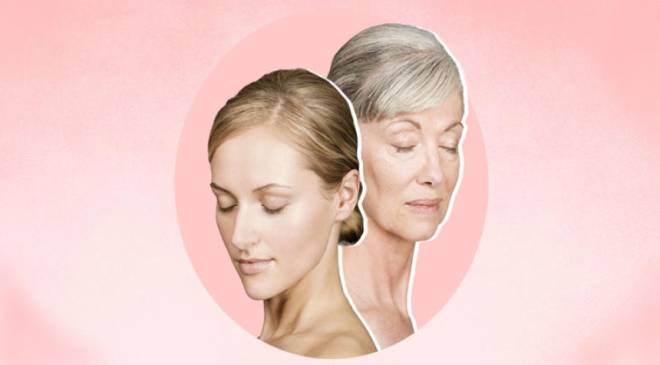How old are you, exactly? That used to be an easy—if impertinent—question to answer. It turns out the truth is a moving target. There’s your chronological age—the number of candles on your birthday cake—but there’s also your biological age, which is, essentially, the age of your cells. While the chronological clock moves inexorably forward (don’t we know it), recent studies show that biological age is more malleable. In fact, it can even be reversed.
Also Read– Millions who rely on Medicaid may be booted from program
For those intent on living forever—primarily those with enough Benjamins to become Benjamin Buttons—biological de-aging has become a competitive sport. There’s tech entrepreneur Bryan Johnson, chronologically 45, who has recruited a team of 30 doctors to develop an experimental regimen he calls Project Blueprint, through which he aims to rewind his cellular clock to before he was old enough to drink (18, to be exact). At a cost of $2 million a year, he pops scores of pills a day, subsists primarily on vegan smoothies, works out like an Olympian, and undergoes monthly blood tests, MRIs, and colonoscopies. His doctors say he has the heart of a 37-year-old, the skin of a 28-year-old (thanks to regular full-body laser treatments), and the lungs of a teenager, with an overall biological age of 40. You may also have read about Zuzalu, a two-month, invite-only longevity-focused gathering of crypto elites that took place in Montenegro this spring. On the docket for discussion was the establishment of a regulation-free zone (possibly in Rhode Island) where biotech companies would be able to experiment with age-reversing drugs sans FDA interference.
But the obsession with “real” age is no longer strictly the domain of billionaire hackers and wellness wonks. Biological age testing is now on the menu of virtually every swanky spa and wellness clinic, and a slew of home tests have arrived, including Elysium Index, Novos Age, and the recently launched Tally Health, co-founded by famous Harvard longevity researcher David Sinclair. While the method of testing varies—some assess age-related biomarkers in blood or saliva; others determine the presence of chemicals that affect how genes are expressed; still others measure telomeres, protective caps on the tips of chromosomes that can be indicative of longevity—the goal is always the same: to determine the discrepancy (if any) between one’s chronological and biological age, and then provide tools to close the gap.
Testing can be harrowing. While some blessed souls do register younger, it’s not uncommon to receive a biological age result significantly older than the number on your ID. But—hallelujah—only 10 percent of longevity is genetic. The rest is dependent on what’s called epigenetic factors, almost all of which are lifestyle-related, so you have more control over moving the needle on your cellular clock than you might think. The factors that fast-forward biological age? Stress, poor diet, alcohol consumption, lack of exercise, and insufficient sleep. Don’t act too surprised.
Also Read- Biden administration doesn’t want doctors prescribing controlled substances remotely
Depending on where you get tested, the recommended strategy for course correction may have a different emphasis. If you’ve undergone the blood draw for the vitamin and supplement company Thorne’s Biological Age Health Panel, for instance, you could be advised to take nicotinamide riboside (a precursor to making the compound NAD+ in the body, which is critical for DNA repair and cellular health) or supplements that support metabolic health (such as berberine, a botanically derived compound currently all over TikTok as “nature’s Ozempic”). Tally Health, which uses a cheek swab to assess DNA methylation (the most accurate indicator of biological age), presents you with an action plan that includes such things as the exercise intensity you should aim for and how much fruit you should eat. And if you join Tally’s membership program, you can test every three months to check your progress.
Results can come fairly quickly. “In one study the average epigenetic age decrease after an eight-week implementation of a plant-based diet, supplements, exercise, sleep, and stress management, was 3.23 years, which is quite striking,” says Tally Health VP and head of R&D Dr. Trinna Cuellar. If you’re female you have an edge, too. “Women age more slowly as measured by epigenetic clocks like Tally’s,” she says, “and we have a longer life expectancy.”
Dr. Tamsin Lewis, medical adviser for Rosebar, a state-of-the-art longevity program at Six Senses Ibiza, says the key is to take a 360-degree approach. “In people who exercise more and reduce alcohol consumption, pollution exposure, and smoking, biological age slows down. But if you do these things and then you get a divorce, it’s not going to be effective,” she says. “That’s why stress management is important.” Among the age-rewinding treatments you might get at Rosebar: full-body cryotherapy, vitamin IVs, and recommendations for small daily adjustments to make after you leave, like walking a street away from the busiest thoroughfare to avoid pollution, and using skincare that supports barrier function.
Also Read- New Mexico governor pans Forest Service amid wild cow fight
Speaking of which, biological aging buzzwords have also begun to breach the skincare realm. Expect to hear a lot more about “senescent” cells, which are essentially old cells that don’t die off but persist, zombie-like, sending garbled signals to young cells and wreaking age-accelerating havoc. The next wave of skincare will likely be focused on disabling and clearing cellular junk, while also harnessing the latest in epigenetic science to prevent signs of aging from appearing. Who says you’re only young once?









































